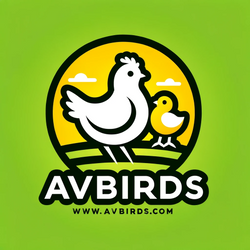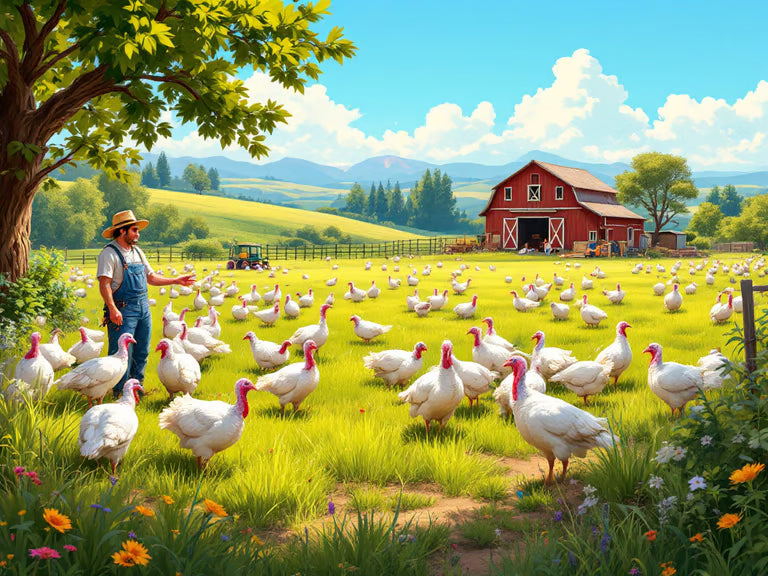If you’ve been dreaming of visiting a live turkey farm in California, you’re in the right spot. Picture you and your family strolling past oak trees to a pen full of curious turkeys. It’s a hands-on adventure that brings you closer to your holiday meal. In this guide, you’ll get practical tips on planning your visit, choosing the perfect bird, and raising it with confidence.
Plan Your Visit
Before you load everyone into the car, nail down the when and where. Most farms open tours from mid-October through November. You’ll want to check dates and hours early—some spots fill up fast on weekends.
- Confirm dates and hours on the farm’s website
- Reserve your slot if required (popular farms often limit group size)
- Compare budgets by checking live turkey prices for thanksgiving
- Note any age or group size restrictions
Even with a roughly 40% increase in wholesale turkey prices this year, thanks to disease challenges and economic shifts, there’s still plenty of birds available (American Farm Bureau Federation). Ready to get started?
Pick a Farm
California has family-run farms, heritage-breed specialists, and organic operations. Here’s how to zero in on the one that fits your style:
- Check local listings for live turkey availability in california
- Search maps or directories for buying live turkeys near me
- Look for breed options—heritage or Broad Breasted White—via live turkey breeds for thanksgiving
- Factor in drive time and on-site perks like hayrides or petting zoos
If you’re curious about starting even earlier with hatching eggs or poults, see avbirds.com’s turkey poults and hatching eggs guide (https://avbirds.com/turkey-poults-and-hatching-eggs).
Pack Your Essentials
You don’t need a ton of gear, but a few must-haves will keep everyone comfortable.
- Closed-toe shoes and socks (turkey pens can get dusty)
- Work gloves or disposable rubber gloves
- A reusable water bottle and light snacks
- A phone or camera for photos
- A cooler lined with straw or clean towels for turkey transport
Got your checklist ready? Let’s move on.
Enjoy Farm Activities
Most farms offer more than just turkey-watching. Here’s what to expect:
- Guided pen tours with feed bucket in hand
- Photo ops near fluffed-up toms (adult males) and hens
- Hayrides or wagon tours around pastures
- Small animal petting areas—kids love goats and chicks
Tip: Ask if they let you help call the turkeys at mealtime. It’s a fun memory and a great photo moment.
Choose Your Turkey
Not all turkeys are created equal. Aim for a healthy bird that will thrive before Thanksgiving.
- Look for clear, bright eyes and smooth, intact feathers
- Handle gently—alert, curious turkeys are a good sign
- Check weight guidelines via live turkey weight for thanksgiving
- Explore top picks in our best live turkeys for thanksgiving dinner
Not sure which breed to pick? Heritage strains like Bourbon Reds offer deep flavor, while Broad Breasted Whites deliver ample breast meat. For cooking tips later on, visit avbirds.com’s thanksgiving turkey page (https://avbirds.com/thanksgiving-turkey).
Transport Your Turkey
Once you’ve picked your bird, keep it calm and comfortable on the drive home.
- Use a well-ventilated crate lined with straw or towels
- Cover the crate loosely with a breathable cloth to reduce stress
- Secure the crate so it won’t shift during turns
- Keep the cabin cool—turkeys overheat easily
For more on handling, see live turkey handling for thanksgiving.
Raise Your Turkey
You’ve got your turkey home—now what? Let’s break it down step by step.
Set Up Housing
Provide at least 10 square feet per bird in a covered pen. Include:
- A weatherproof coop or barn area
- Perch bars raised a foot off the ground
- Predator-proof fencing (buried at least 6 inches)
Learn more in our live turkey housing requirements.
Follow Feeding Guide
Turkeys need a balanced diet rich in protein to hit weight targets.
- Starter feed (28% protein) for poults under 8 weeks
- Grower feed (20% protein) from 8 to 16 weeks
- Finisher feed (16% protein) in the final month
Fresh, clean water is a must. See our full live turkey feeding guide.
Monitor Health
Check daily for signs of illness or injury:
- Droopy posture or labored breathing
- Ruffled feathers or bare spots
- Limping or unusual droppings
If you spot problems, review live turkey behavior characteristics and live turkey health tips for thanksgiving.
Prepare for Slaughter and Cooking
When Thanksgiving arrives, follow humane steps:
- Review the live turkey slaughtering process
- Then master your oven with live turkey roasting techniques
Understand Local Rules
California has rules on live poultry sales and processing. Here’s the gist:
- CDFA’s Meat, Poultry and Egg Safety Program covers on-farm processing (CDFA)
- County ordinances often govern direct-to-consumer sales at farmers markets
- You may need a permit—see live turkey permits for thanksgiving
- Consider liability coverage via live turkey insurance for thanksgiving
Always double-check with your local ag office before you buy.
Wrap Up and Next Steps
Visiting a live turkey farm in California is a fun way to connect with your meal and teach your family about where food comes from. You’ve planned, packed, picked your perfect bird, and set up home. Now dive deeper into raising live turkeys for thanksgiving for pro tips on a happy, healthy bird.
Got a favorite memory from your farm visit? Share it in the comments below so everyone can benefit.

